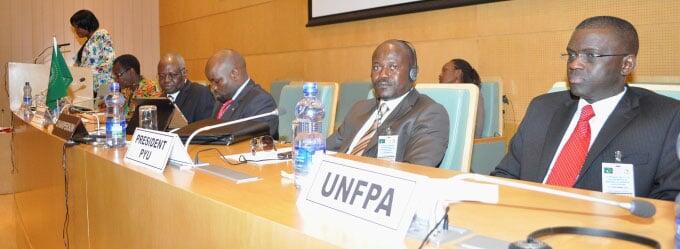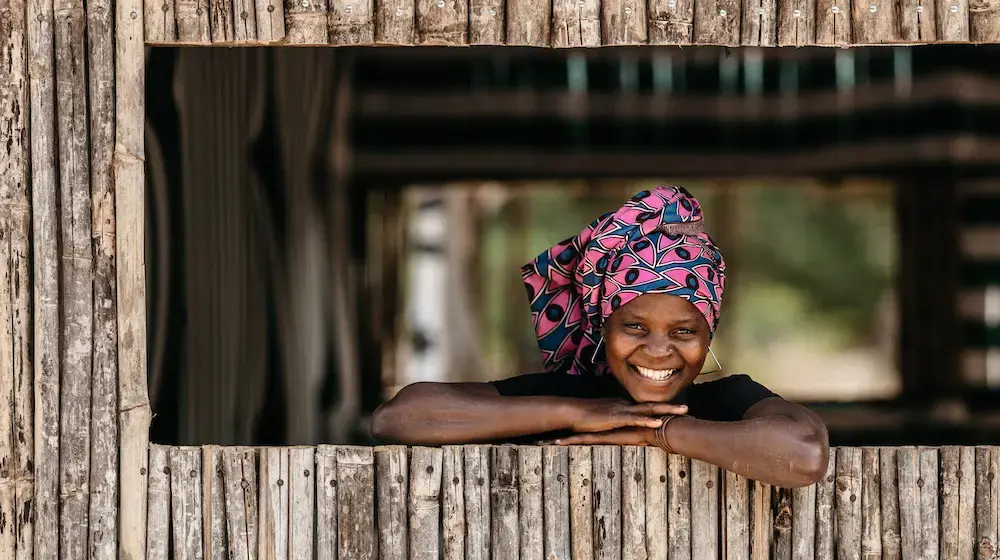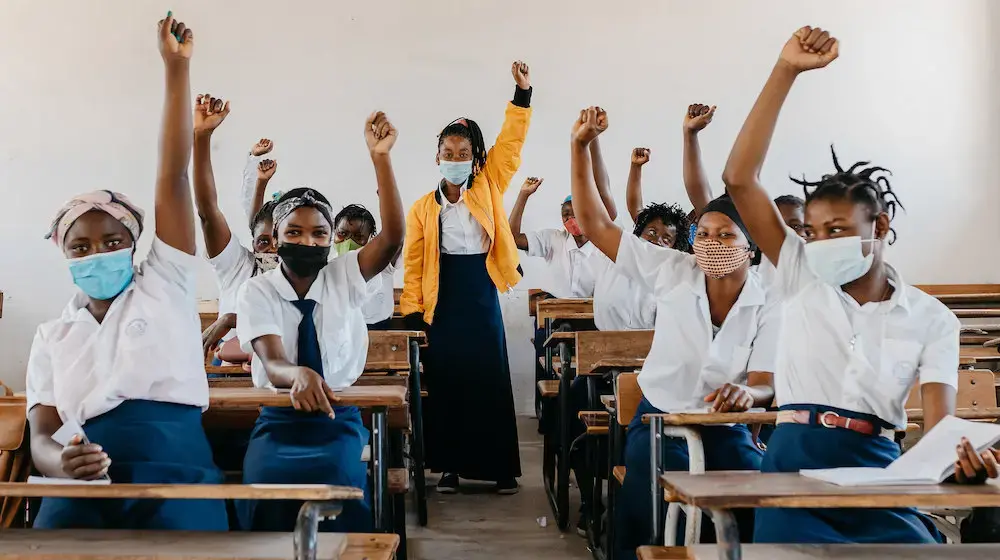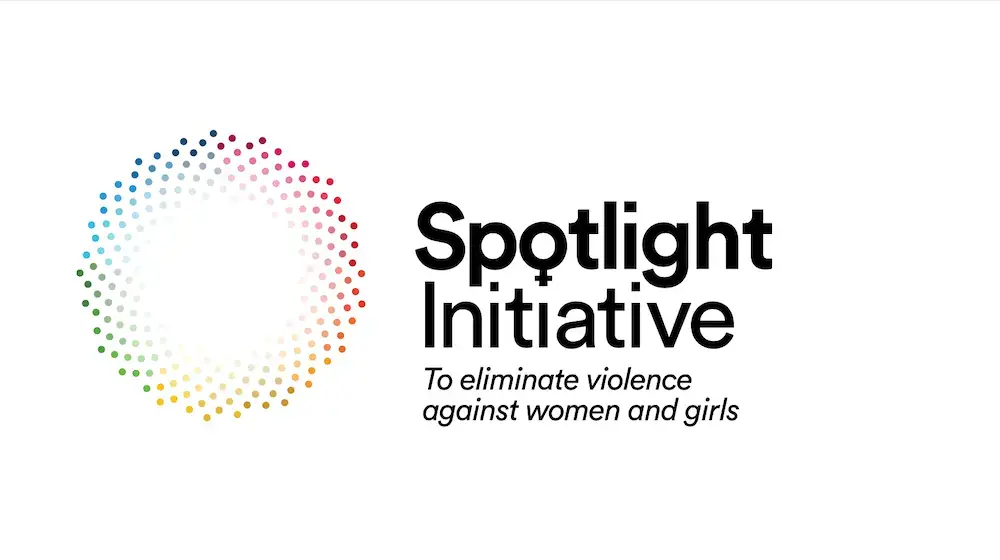ADDIS ABABA, Ethiopia — Child marriage is a devastating human rights violation that robs millions of girls of their future and hinders countries’ paths to development. It’s time to take concrete action to end this practice.
This call was made by Mady Biaye, Regional Technical Adviser on Population and Development in UNFPA’s Africa Regional Office, at the 4th Conference of the African Union Ministers Responsible for Youth (COMY IV) in Addis Ababa, Ethiopia on 13 September.
The conference is held every two years to discuss implementation of the African Union Commission’s (AUC) strategic plan action priorities. It aims to ensure that the adopted decisions, frameworks and policies are implemented at the national level.
At the conference, 20 African ministers of youth and experts debated issues of youth development, including the youthful population in Africa, the conditions of doing business for young people, the investment plan for youth employment and guidelines for youth empowerment.
Mr Biaye participated as a panelist and discussant in the debate on Africa’s Demographic Window. UNFPA and Africa Health, Human and Social Development (AHHSD) organized an evening cocktail debate on the theme ‘Improving Policy Investment in Africa’s Young Women & Girls … abolishing social practices that negatively impact on their Health, Education and Economic Productivity’.
Majority of countries with high child marriages are in Africa
He said that of the 20 countries with the highest percentage of women aged 20-24 who were first married or in union before the age 18, 75 per cent are African countries. Among them, child marriage is the highest in Niger, at 75 per cent, and the lowest in Zambia, at 42 per cent. This is according to evidence from surveys such as the Demographic and Health Surveys (DHS) and the Multiple Indicator Cluster Surveys (MICS).
Statistics show that the scourge of child marriage is also very common in Chad (72 per cent), Guinea (63 per cent), the Central African Republic (61 per cent), Mali (55 per cent), Mozambique (52 per cent), Malawi (50 per cent), Ethiopia (49 per cent), Madagascar (48 per cent), Sierra Leone (48 per cent), Burkina Faso (48 per cent), Eritrea (47 per cent), Uganda (46 per cent) and Somalia (45 per cent).
Adolescent fertility rates are high in these countries. For instance, in Niger the rate verges on 199 children per 1,000 women aged 15-24 years. The total fertility rate, which is the number of children per woman in reproductive age, varies between 4.8 (Eritrea and Madagascar) to 7 (Niger). Higher adolescent fertility can also be explained by early sexual debut and unprotected sexual activity amongst young girls – including forced sex and child marriages.
When girls become mothers, their opportunities for completing their education, competing for work and for being competent, fit and skilled for work, are substantially reduced, Mr. Biaye said.
Child marriages rob millions of girls of their future
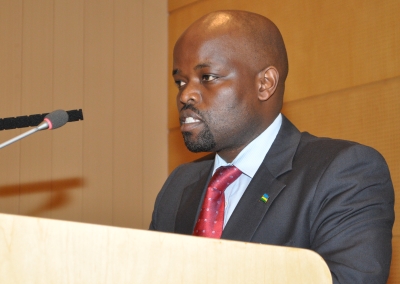
Each year, child marriage robs millions of girls of their childhood, education, health and future. It entrenches girls and families in poverty and hinders their countries’ paths to development.
Child marriages are associated with high maternal and neonatal deaths, fistula formation, and a higher number of pregnancies in a woman’s life time. Going through this can shatter a young girl’s dreams and reduce her opportunities and potential to be fulfilled.
The vast majority of maternal deaths are avoidable as the likelihood of maternal death increases among women who have many children, are poorly educated, are either very young or very old, and who are subjected to gender discrimination. The two main causes of death among adolescent girls are maternal mortality and HIV.
Mr. Biaye said that sexuality education can empower young people to say no to pressure and to protect themselves if they are sexually active. It can empower them to become agents of societal change towards building a better world. Sexuality education has proved to be effective in delaying sexual debut, lowering teenage pregnancy and HIV and sexually transmitted infections (STIs) in young people.
Child marriage is highly correlated with maternal deaths
For many reasons, child marriage is a harmful socio-cultural practice that affects the healthy development of adolescents and young people. The root cause of child marriage, which is a violation of a girl’s human rights, is poverty. It exposes her to HIV and STIs, and is correlated with a high risk of maternal mortality. Child marriage questions issues related to tradition, gender roles, adequacy of the response of legal institutions, and security, particularly in conflict situations.
Combating child marriage – a blight on society – therefore calls for doubling and joining our efforts to address it properly in order to put an end to it. And now is the time to take concrete action, Mr. Biaye said.
The following Member States were represented at the conference: Algeria, Benin, Botswana, Burkina Faso, Burundi, Cameroon, Central African Republic, Chad, Congo, Cote d’Ivoire, Djibouti, Republic Democratic of Congo, Egypt, Ethiopia, Eritrea, Gabon, the Gambia, Ghana, Guinea (Conakry), Kenya, Lesotho, Malawi, Mauritania, Mozambique, Namibia, Nigeria, Rwanda, Saharawi Arab Democratic Republic , Senegal, South Africa, Sudan, South Sudan, Swaziland, Tunisia, Uganda, Zambia and Zimbabwe. Most of the national delegations comprised the Minister, the Senior Officer in charge of Youth Affairs and a youth leader from the National Youth Council (NYC).
Also participating were the Pan-African Youth Union (PYU), the President, the Secretary General, and delegates from the Executive Committee. The Regional Economic Communities were represented through COMESA, and representatives from organizations such as the African Development Bank (AfDB), The World Bank (WB), various United Nations agencies, and non-governmental organizations took part.


